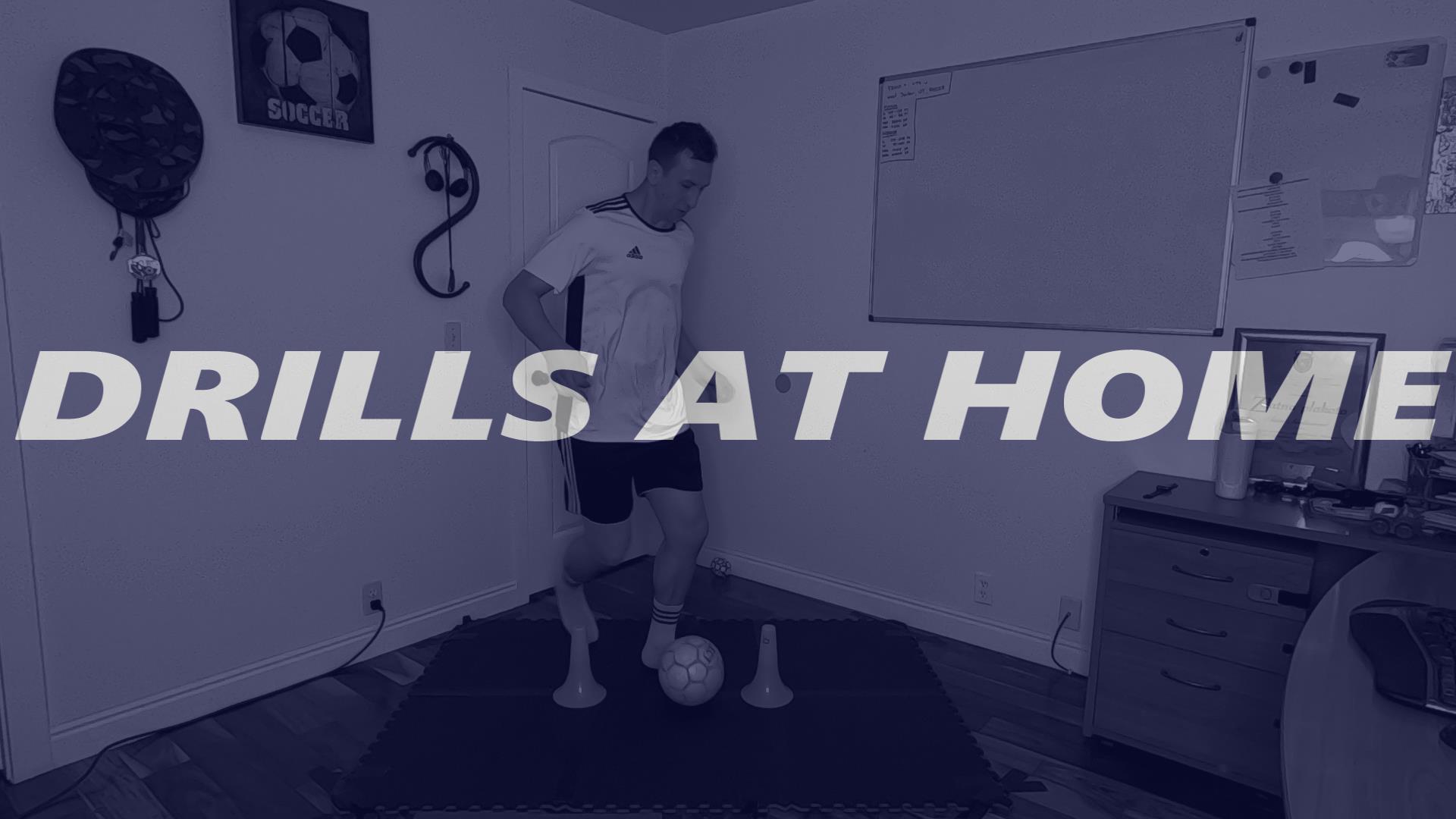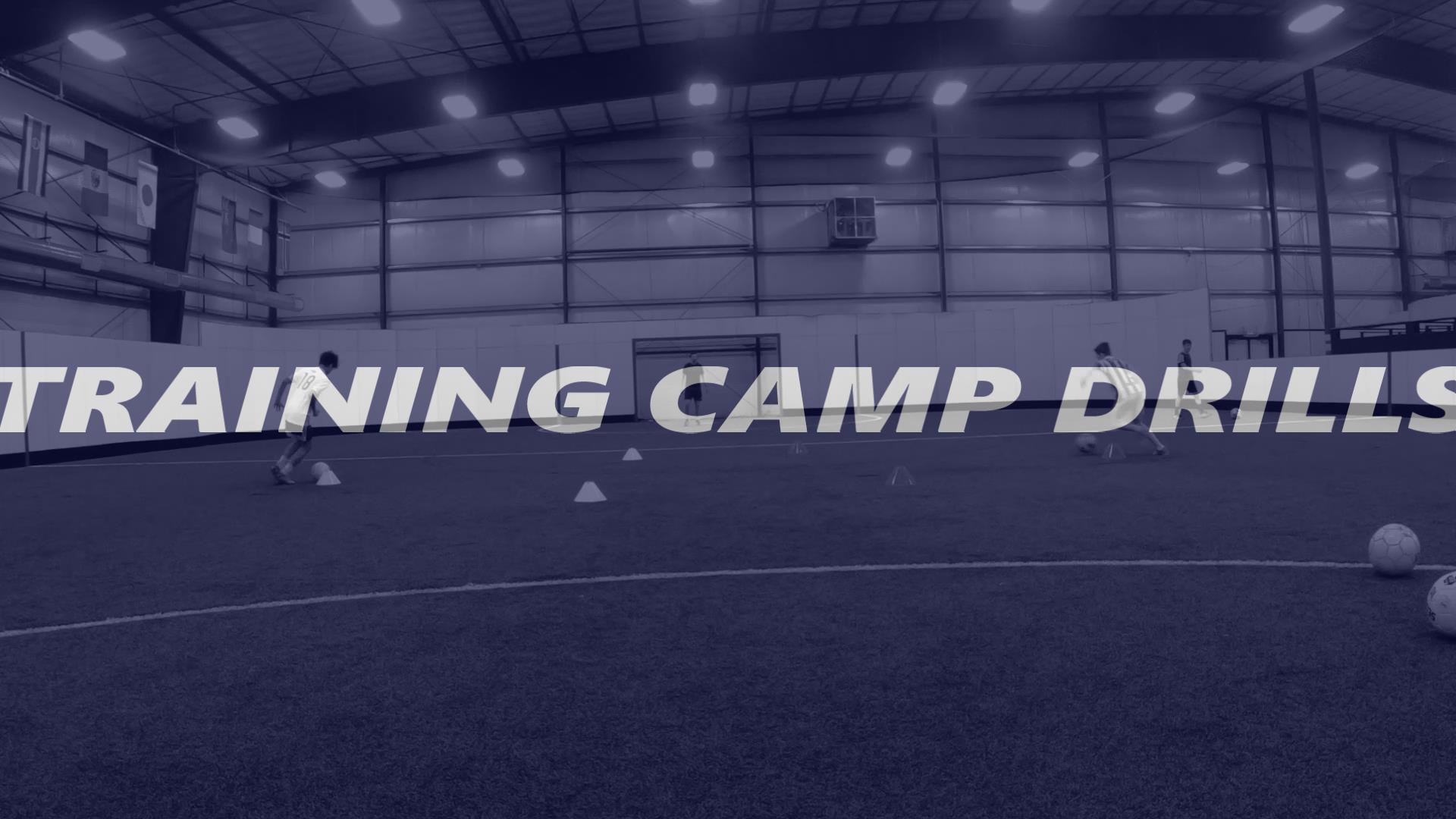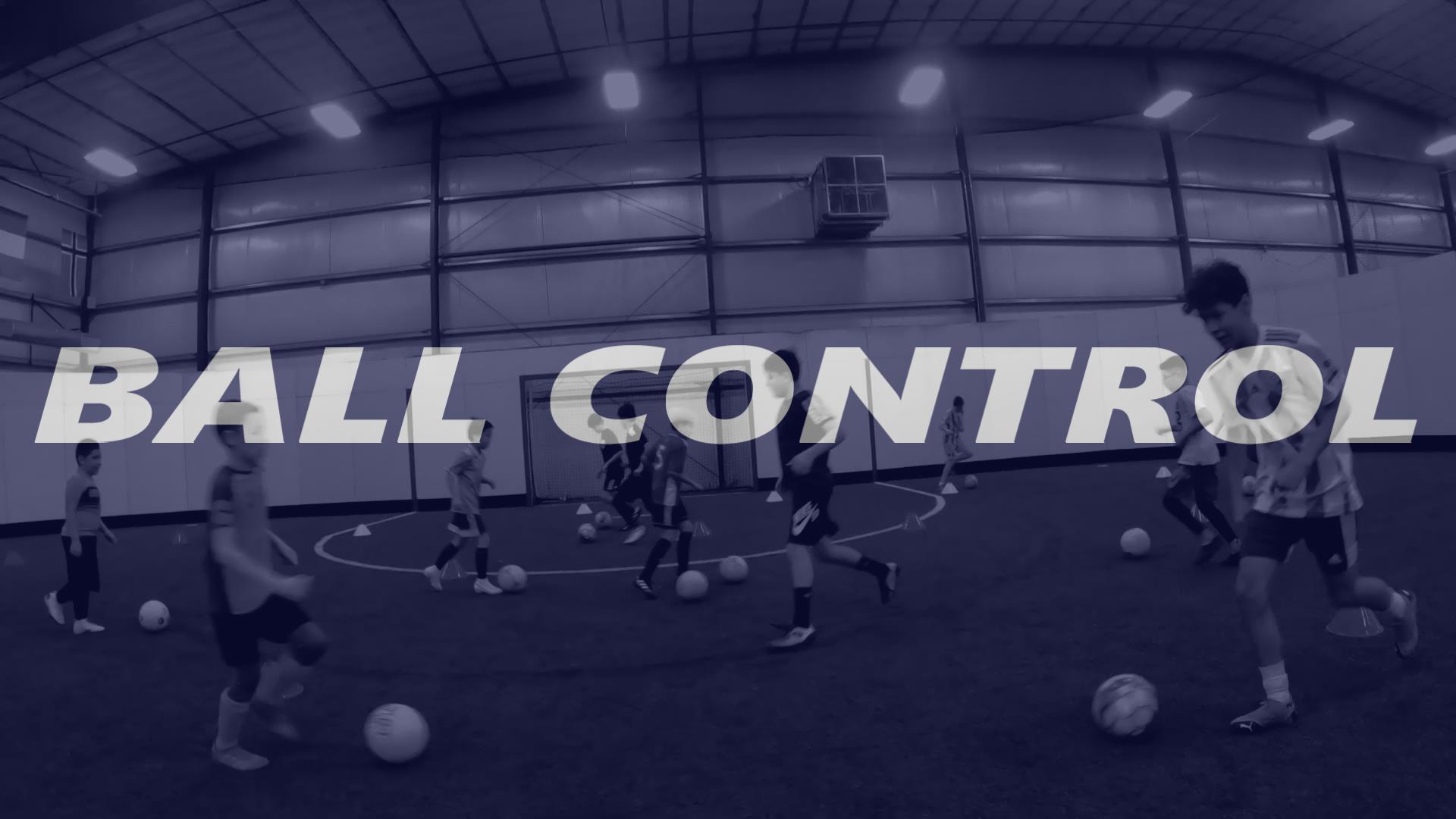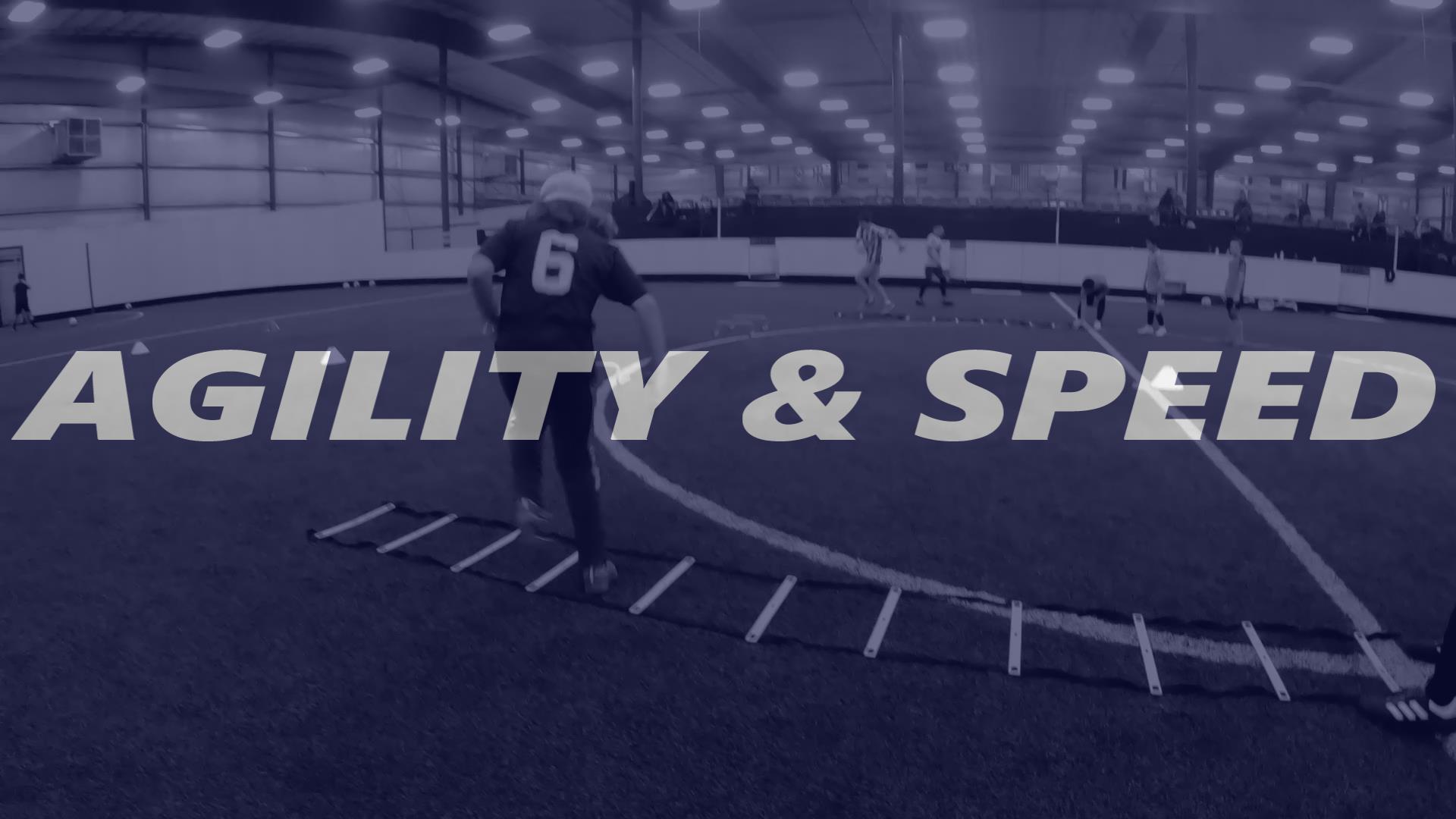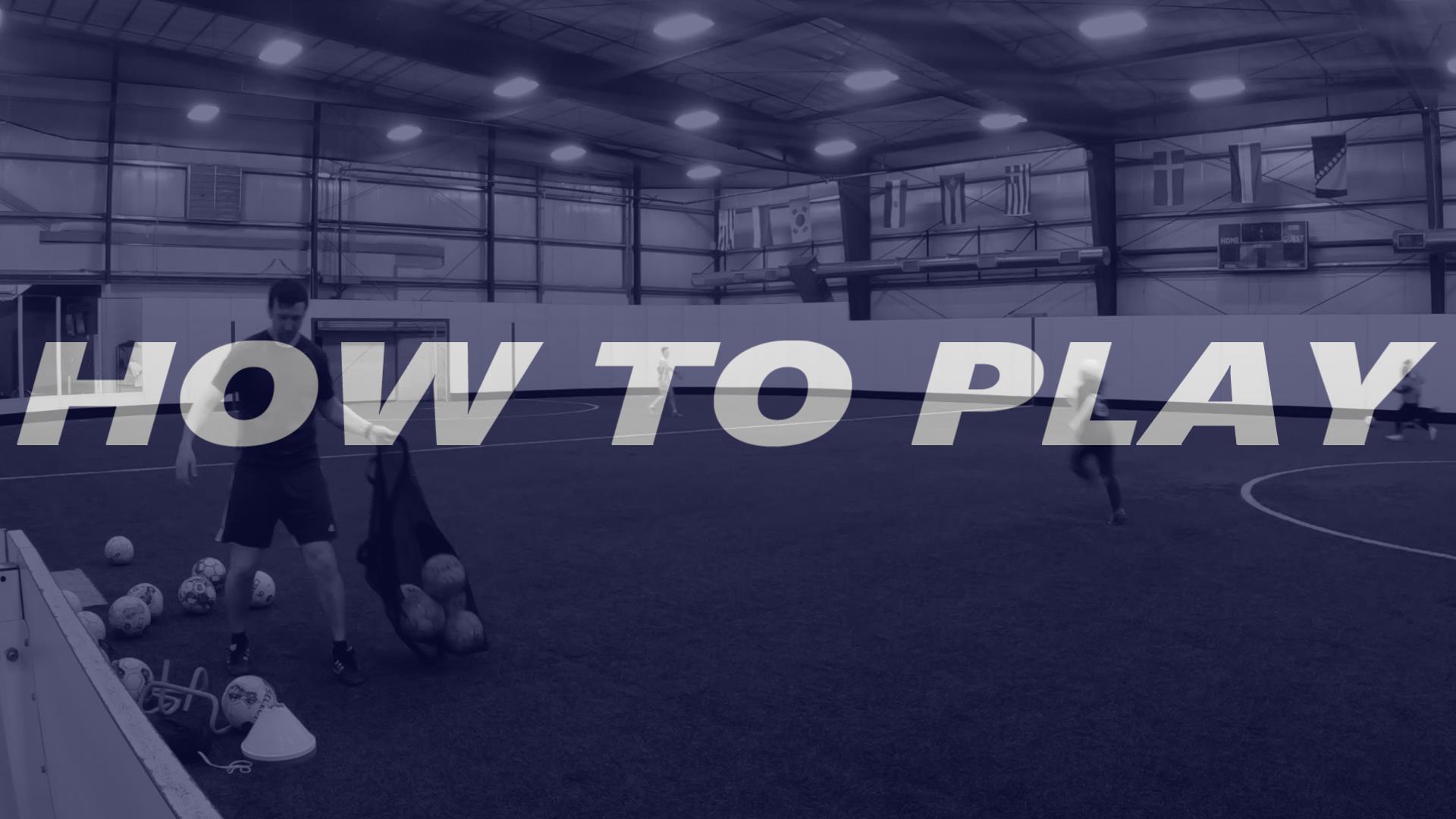Soccer Training for Kids
Football is LIFE!
Soccer Training for Kids E6
Soccer Training Drills
for Kids at Home Timeline
- (00:05) Gates with Stepovers
- (00:36) Inside / Outside Control Both Feet
- (01:11) Outside Foot Turning Both Feet
- (01:38) Pull Back Opposite Foot Outside Control
- (02:30) Freestyle with the Soccer Ball
- (03:41) Juggle the Soccer Ball
- (04:27) Moving Gates Forward / Backward
- (04:54) Moving Gates Sideways Right / Left
- (05:24) Right Foot Pass Off the Wall, Receive into Space with Inside or Outside, Pull the Ball Back with Sole
- (06:01) Switch to Left Foot Pass Off the Wall, Receive into Space with Inside or Outside, Pull the Ball Back with Sole
- (06:36) 3 Cones 1 Foot Apart, Quick Footwork Sideways
- (07:34) 3 Cones 1 Foot Apart, Quick Footwork Sideways with Hop/Jump
- (08:22) 3 Cones 1 Foot Apart, Single Foot Sideways Hops
- (09:02) 3 Cones 1 Foot Apart, Quick Footwork Forward & Backward
- (09:30) 3 Cones 1 Foot Apart, Quick Footwork Through Cones
⚽️ TRAIN HARDER! ⚽️ TRAIN CONSISTENT! ⚽️ PLAY BETTER!
Soccer Training for Kids
** Soccer Training for Kids at Home Timeline **
- (00:00) Roll the Ball Forward and Back with RIGHT Foot - 45 Sec
- (00:16) Roll the Ball Forward and Back with LEFT Foot - 45 Sec
- (00:33) Gates with Trapping - 90 Sec (01:00) Gates and Sole Ball Control - 90 Sec
- (01:21) Freestyle with the Soccer Ball - 90 Sec
- (01:51) RIGHT FOOT Sole Control Around the Cone - Switch Direction Clockwise / Counterclockwise - 45 Sec
- (02:19) LEFT FOOT Sole Control Around the Cone - Switch Direction Clockwise / Counterclockwise - 45 Sec
- (02:45) Cone Square Quick Footwork Running without the Soccer Ball - Add Direction Change - 2/3 Reps
- (03:01) Cone Square Forward Touches and Sideway Rolls with the Soccer Ball - 2/3 Reps
- (03:11) Cone Square Gates with Sideway Rolls with the Soccer Ball - 2/3 Reps
- (03:40) Cone Square Gates Forward and Back with Sideway Rolls - 2/3 Reps
- (04:11) Cone Square Toe Touches Forward and Back with Sideway Rolls - 2/3 Reps
- (04:26) Cone Square Right Foot Outside Turns and Left Foot Inside Turns - 2/3 Reps
- (04:37) Cone Square Right Foot Inside Turns and Left Foot Outside Turns - 2/3 Reps
- (04:57) Cone Square Right Foot Zig Zag Control - 2/3 Reps
- (05:03) Cone Square Left Foot Zig Zag Control - 2/3 Reps
- (05:13) Cone Square Zig Zag Quick Footwork Run - 2/3 Reps
- (05:21) Cone Square Zig Zag Quick Footwork Run Opposite Side - 2/3 Reps
- (05:28) Cone Square Sideways, Forward, Backpedal, Sideways Quick Footwork Run - 2/3 Reps
- (05:45) Playing with the Dog
- (06:15) Question for my Little Soccer Maniak
⚽️ TRAIN HARDER! ⚽️ TRAIN CONSISTENT! ⚽️ PLAY BETTER!
Soccer Training for Kids starts at home with the will to train and improve your skills outside of regular practice.
I started this soccer training for kids website to inform and educate people from my long experience in soccer. If I'm not playing the game, I am watching the game; if I am not watching, I am coaching the youth.
Soccer is a big part of my life, and this website is the diary and journey of my soccer life.
Soccer Success for the 1% of Players
Millions of people worldwide follow professional soccer, where winning is the ultimate goal in the game.
Professional soccer athletes live a luxurious life, with players earning millions of dollars for their skills with the ball and the commitment to perform.
Their overpaid salary comes with a commitment to daily soccer training and playing games. These players represent the club and commit to abide by the club's rules.
Players are REQUIRED to spend every day in soccer training, developing their skills further and further, with 2 to 3 soccer training sessions every day.
Younger soccer players should want to play soccer as often as possible. Soccer is not a chore, but a way to get away from everything and kick the ball around with friends, or by yourself.
Players below 12 years old should not have to deal with the pressure for winning games. Their focus should be on having fun playing soccer, being creative, learning from the game, and applying simple technical skills acquired through training.
Having fun, training hard and working on the technical part of the game (how to do different soccer skills properly), is best for developing younger soccer players.
As players get older and winning becomes more important, positive habits and skills repeated early in a player's journey will come out to play and win games.
Soccer Drills Come in Many Forms

The Game itself is a great Coach for players to use. To fully utilize the Game as a Coach, players need to play more soccer with friends, teammates, rebound goals, or the wall. The Game decides what soccer drills players do through fun and creativity with the ball and space.
It takes years and thousands of hours of soccer training and playing, repeating different soccer skills through various soccer drills, over and over again, to become a great soccer player.
Soccer Training time, quality of the training, and playing the game are the most significant factors in player's development, especially at a young age. Talent alone can only take players so far.
Hard work and dedication to train, play, and keep improving are the map to becoming a great soccer player. Legends of the game spent countless hours perfecting their soccer skills, especially when they were younger.
Some of them are still playing and improving with age and experience. Their improvement now, at a later stage in life, is more mental, in the sense of reading the fast-paced game better and making smart decisions quicker.
Time, Passion, and Effort are the critical elements to improving skills in any sport.
Young players need to play more soccer, instead of typical two training sessions per week, with the game on the weekends. Players need to spend time with the soccer ball every day to develop the best soccer skills.
There are several basic, simple, but essential fundamentals of soccer.
Young players, who miss out on the basic soccer fundamentals during their early years, will not be playing to their full potential as they get older.
Important soccer fundamentals are developed through repetitive soccer training and different games.
- Proper running with or without the ball.
- Simple dribbling moves to get out of tight spaces.
- First touch on the soccer ball is crucial for youth development.
- Passing with pace and into teammates path.
- Receiving the ball on the ground or in the air.
- Shielding the soccer ball from the opponent.
- Shooting and Passing with different parts of the foot.
- Decision making.
